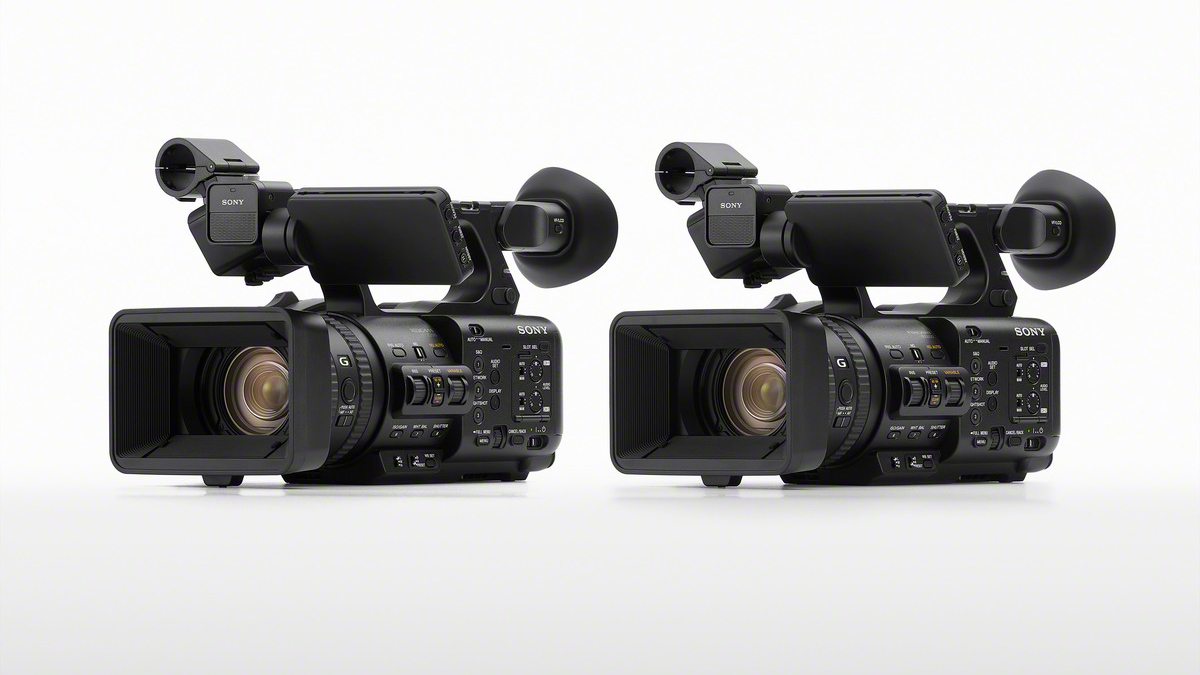
Sony has added two handheld camcorders for streaming and broadcasting aimed squarely at individual creators and small teams – although Sony is promising that this can be done with the minimal of experience, perfect for those put off by the technical challenges of live broadcasts.
The new camcorders have the catchy names of the Sony HXR-NX800 and Sony PXW-Z200. Fundamentally, the two cameras are the same, both being built around Sony’s 1.0-inch-type Exmor RS CMOS stacked sensor and a Sony BIONZ XR processor, and both capable of up to 4K60p/50p footage oversampled from 5K, 120p in 4K with hybrid AF, or up to 240p in Full HD.
The camcorders feature a 20x optical Sony G f/2.8-4.5 Power Zoom lens, which covers a full-frame equivalence of 24mm to 480mm, this can be boosted even further with digital zoom, which can reach 30x (720mm) zoom in 4K and up to 40x (960mm) zoom in FHD using Sony’s Clear Image Zoom image processing to clear up the picture. The lens also has optical stabilization for steadier handheld footage, which can be combined with Sony’s tried and tested Active Stabilisation for heavier movement, but at the penalty of a crop to the final footage.
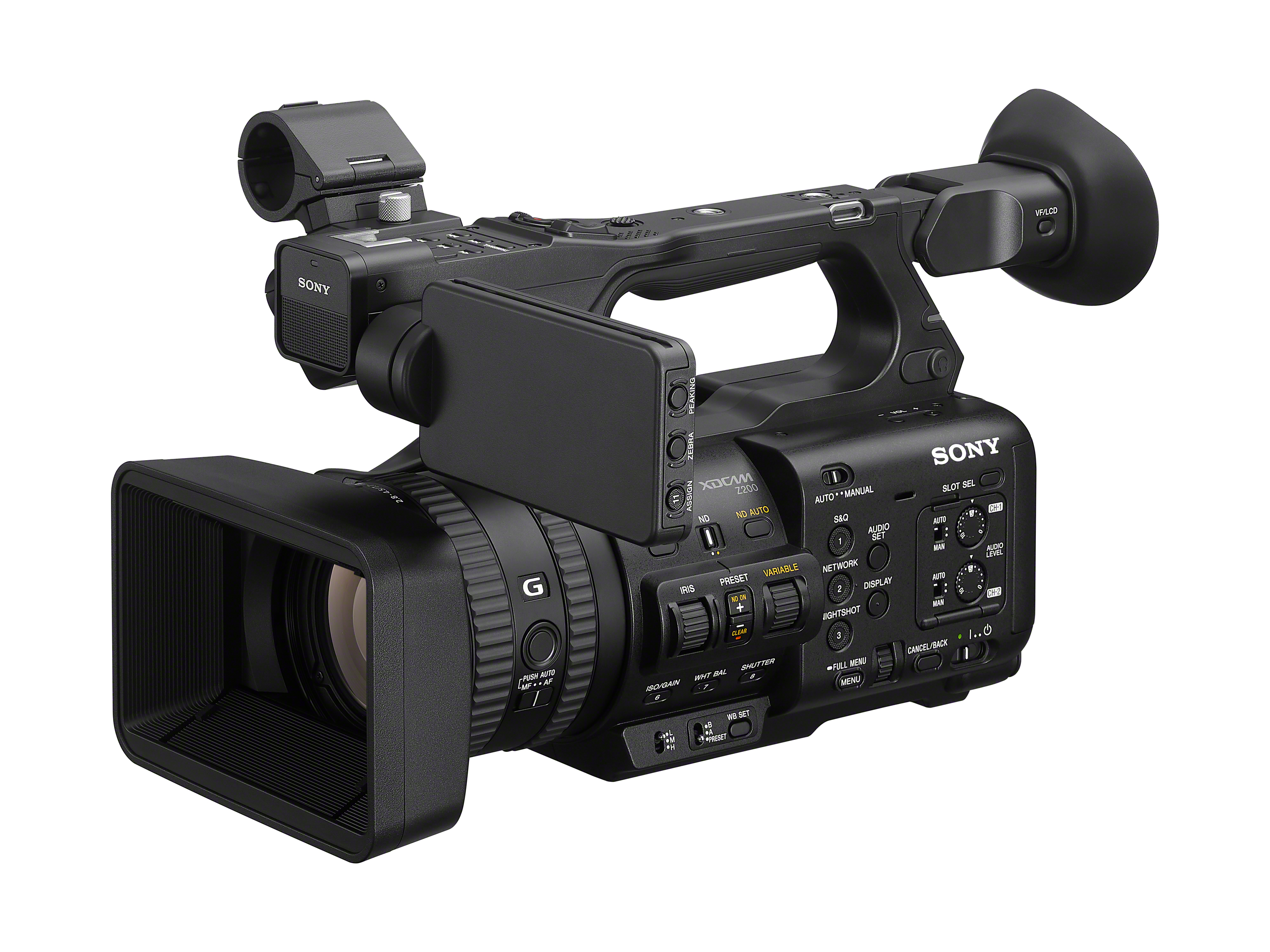
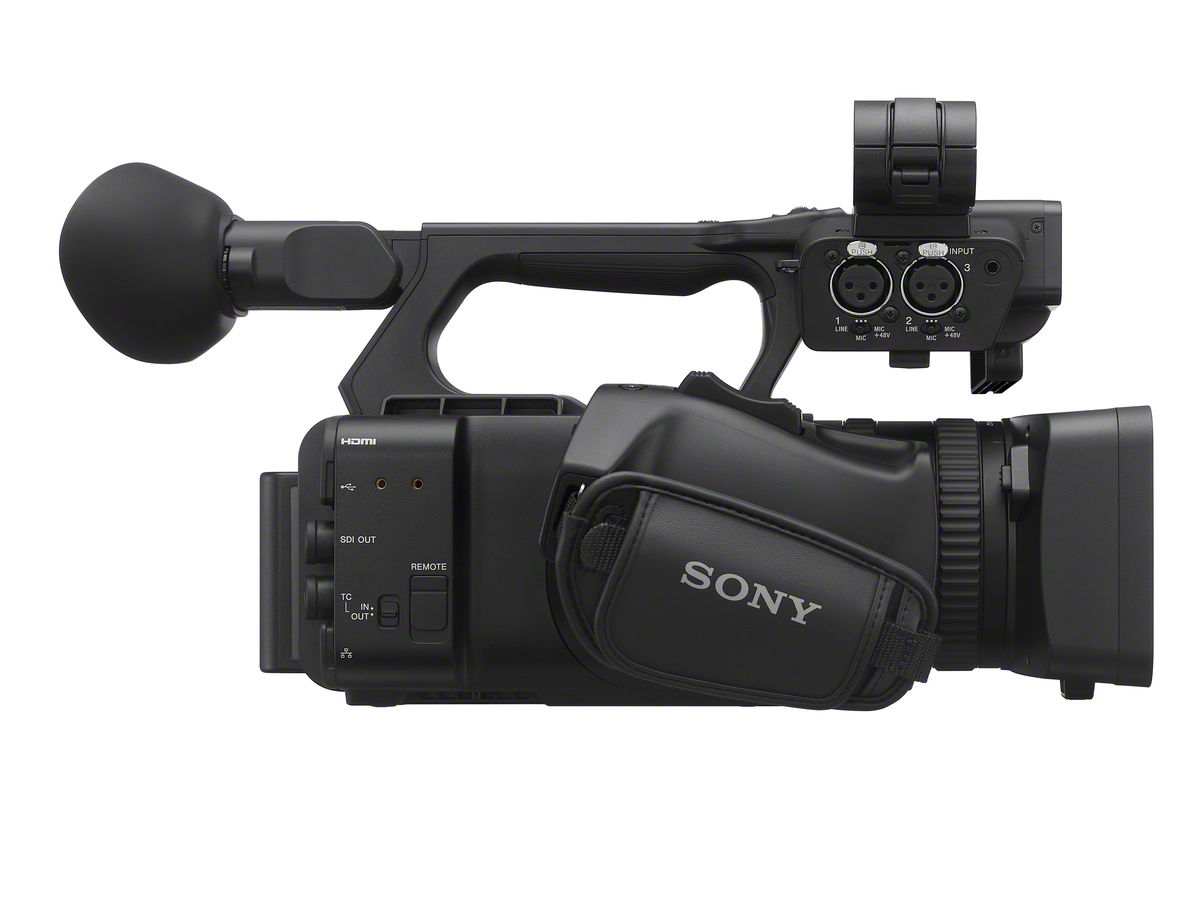
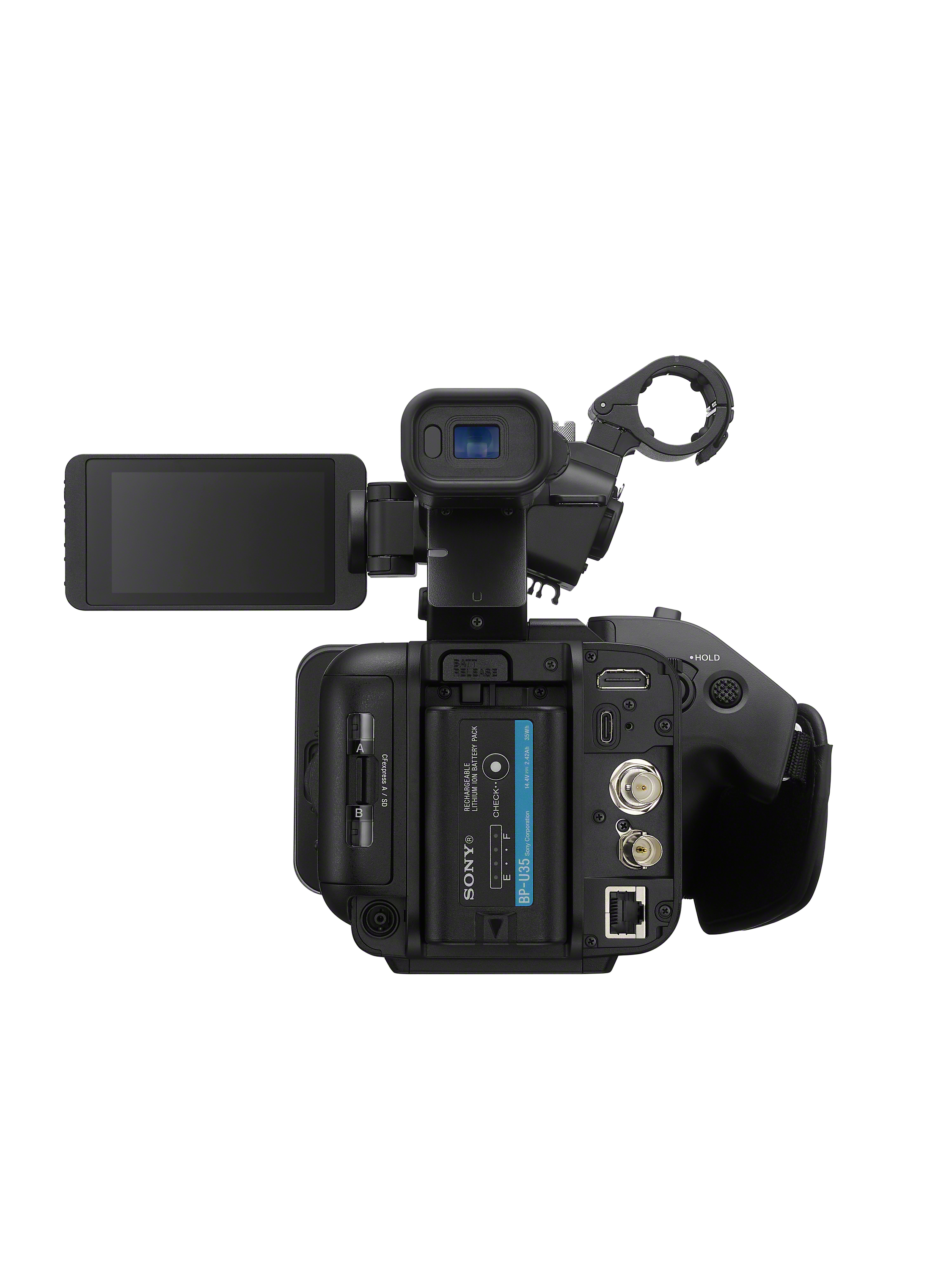
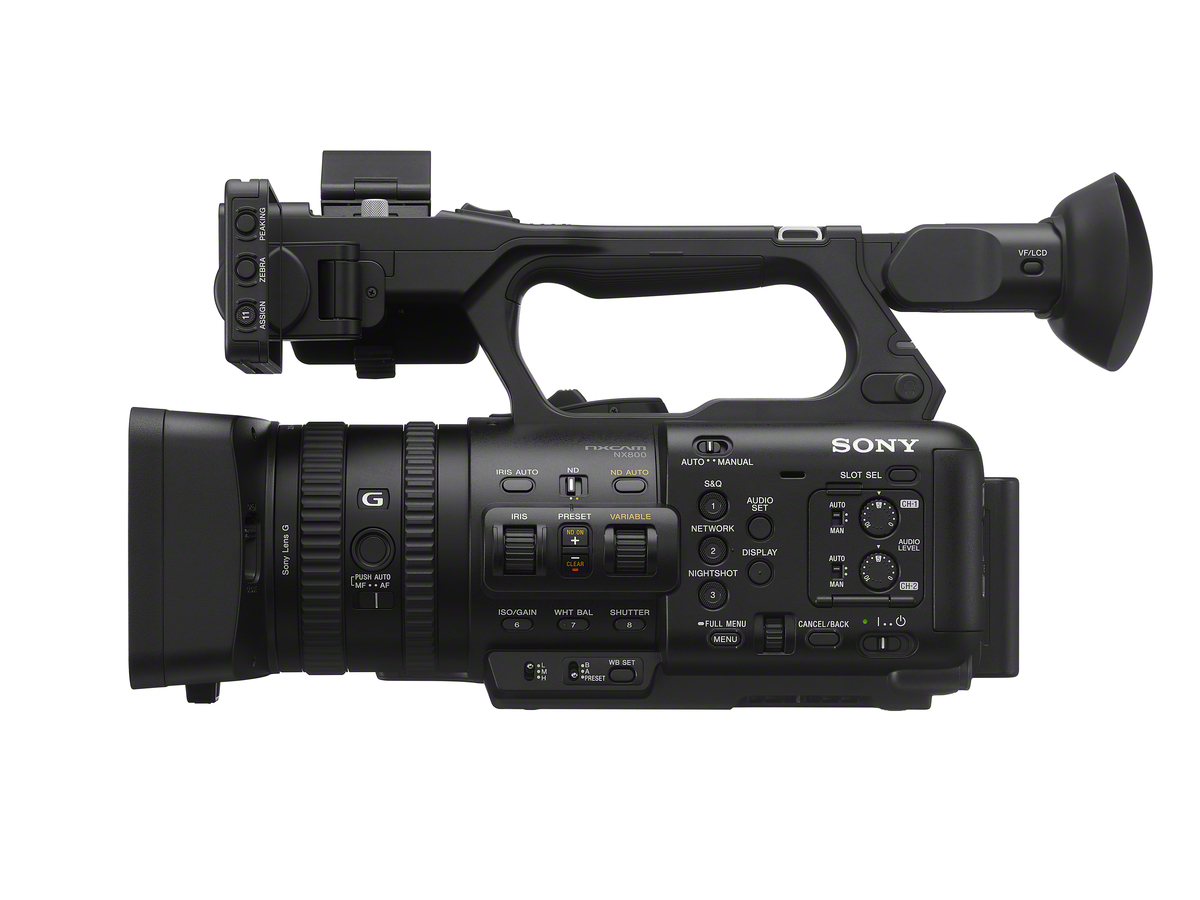
The lens has in total 14 different assignable buttons, as well as rings for the focus, and zoom, and a dial for iris control. The HXR-NX800 and Sony PXW-Z200 also feature a built-in electronic variable ND filter with 1/4 to 1/128 stops – this can either be deployed manually using an additional dial on the lens, or you can use a new auto-ND feature which allows the camera to adjust the ND filter between stops which is useful for filming in environments with changing light sources or going from inside to outside.
Both cameras sport a tiltable 0.39m dot OLED viewfinder, a folding 3.5in LCD monitor for recording at awkward angles, a removable microphone holder, as well as a built-in silent fan for unlimited recording times. The camcorders can be powered by Sony BP-U35/70/100 type batteries.
The HXR-NX800 and PXW-Z200 are equipped with a plethora of ports including HDMI Type-A, USB Type-C, LAN, and REMOTE terminals, as well as dual SDXC/CFExpress Type-A memory card slots.
The PXW-Z200 has a few more port options with SDI (12G, 6G, 3G [Level A/B], HD) input/output, and TC input/output.
Both cameras are compact and relatively light, coming in at slightly under 2kg (around 4.5 lbs), with the PXW-Z200 naturally being the slightly heavier of the two.
This new pair of camcorders takes advantage of the latest developments we have seen recently from its Alpha, ZV, and FX camera lines including AI-powered autofocus and auto-framing tricks. Autoframing allows the camera to crop on a subject and maintain them in the center of the frame as they move around – I have used this on the Sony ZV-E1 and it is very cool and very effective. Autofocus also has Sony’s latest algorithms that use predictive skeletal tracking, which has been shown to produce some incredibly sticky autofocus in Sony’s other cameras.
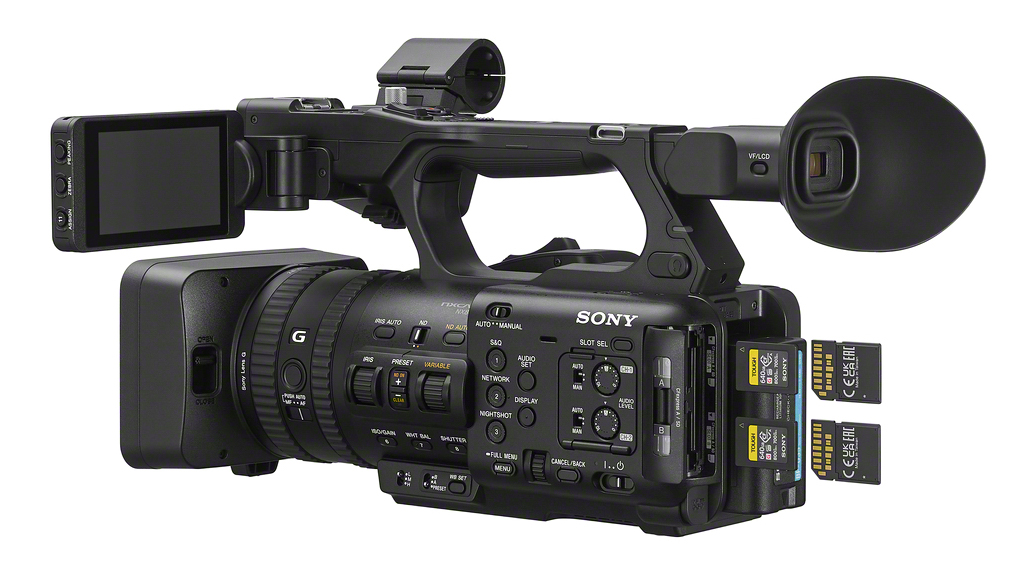
If you want to color-match footage with other Sony cameras, then the HXR-NX800 and PXW-Z200 can record footage in S-Cinetone, ITU709, 709tone, HLG Live, HLG Mild, and HLG Natural to match cameras in the Sony Alpha, ZV or cinema ranges.
The cameras also feature a night shot function which uses infrared light to create B&W recordings even in total darkness.
The camcorders can also take advantage of Sony’s range of recording formats including XAVC HS, XAVC S, and XAVC SI, with the PXW-Z200’s also having access to the XAVC (MXF) standard (but not until summer 2025). Both cameras can also record proxy files for easier transfer for post-production which can be automatically uploaded to the cloud or FTP server – both cameras will also be compatible with Sony’s PDT-FP1 portable data transmitter for uploading on the go away from a steady connection. For streaming, the cameras are capable of streaming in RTMP/RTMPS or SRT via wIFi or USB tethering.
The new cameras will be available in September, with the HXR-NX800 costing $3,299 and the PXW-Z200 $3,999.
Check out our guide to the best camcorders, at all budgets







